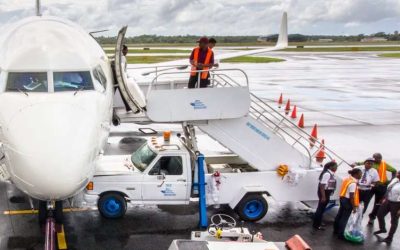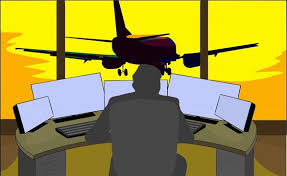linkedin.com/in/shadrachswantekambai

The planning fallacy is a cognitive bias in which people underestimate the amount of time, resources, and effort needed to complete a task or project. This bias was first proposed by Daniel Kahneman and Amos Tversky in 1979 and causes people to make unrealistic plans and timelines that are impossible to meet, resulting in delays, cost overruns, and other issues Rampton (2020).
Planning fallacy can have a significant impact on flight operations, as pilots and other aviation professionals may be prone to underestimating the time, resources, and effort required to complete tasks and projects related to flying. This can lead to delays, cost overruns, and other problems that can compromise safety and efficiency.
- How Nigerian Banks Can Leverage IDERA to Revitalize the Airline Industry
- Aircraft Leasing and the Role of IDERA in Nigeria’s Airline Industry
- Managing Stress and Fatigue: A Shared Responsibility
- Aviation Industry: A Call for Integrity and Intentional Change
- Nigeria Lost the USA FAA Category One Rating: #Implications
How Planning Fallacy Impacts Flight Operations
- Delayed Flight: One way in which the planning fallacy can manifest in flight operations is through the underestimation of the time required for pre-flight planning and preparation. Pilots may underestimate the time required to review weather information, complete checklists, and perform other pre-flight tasks, leading to rushed and incomplete preparations. This can cause delays in departure times, which can have a cascading effect on the entire flight schedule.
- Delayed Maintenance and Repairs: Another way in which the planning fallacy can impact flight operations is through the underestimation of the time required for maintenance and repair activities. Maintenance schedules and repair estimates may be overly optimistic, leading to delays and disruptions that can impact flight schedules and safety.
- Cost overruns: Underestimating the time required for maintenance and repair activities can result in cost overruns, as additional resources may need to be allocated to complete these tasks. This can cause a strain on financial resources, which can impact other areas of the aviation business.
- Inadequate preparation: Underestimating the time required for pre-flight planning and preparation can lead to inadequate preparation, which can compromise flight safety. This can lead to accidents or incidents that could have been prevented with adequate preparation.
- Poor decision-making: Underestimating the time required for critical decision-making processes can lead to poor decision-making, as pilots and other aviation professionals may feel rushed and pressured to make quick decisions. This can compromise flight safety and result in undesirable outcomes.
- Project delays: Underestimating the time required for long-term projects related to aviation, such as the development of new aircraft or the implementation of new technologies, can result in delays and cost overruns. This can cause a significant impact on the aviation business, as stakeholders may have to wait longer to see the benefits of these projects.
Conclusion
To address the planning fallacy in flight operations, it is important to take a realistic and objective approach to project planning and scheduling. This may involve breaking projects down into smaller, more manageable tasks, and estimating the time and resources required for each task based on historical data and expert opinions. It may also involve building in extra time and resources to account for potential risks and uncertainties and implementing effective project management and oversight processes. By addressing the planning fallacy in flight operations, it is possible to improve efficiency, reduce costs, and enhance safety and reliability in aviation.
Recommended:
New Offer: Gulfstream-400 Private Jet for Sale @1.2Million USD Latest:
7 Airlines to Uplift Pilgrims for Hajj2023 in Nigeria
How Culture and Society Affect Crisis Management in Flight Operations
Opinion: How Citizens’ Patriotism Would Affect Nigeria Air Performance in Nigeria.






0 Comments